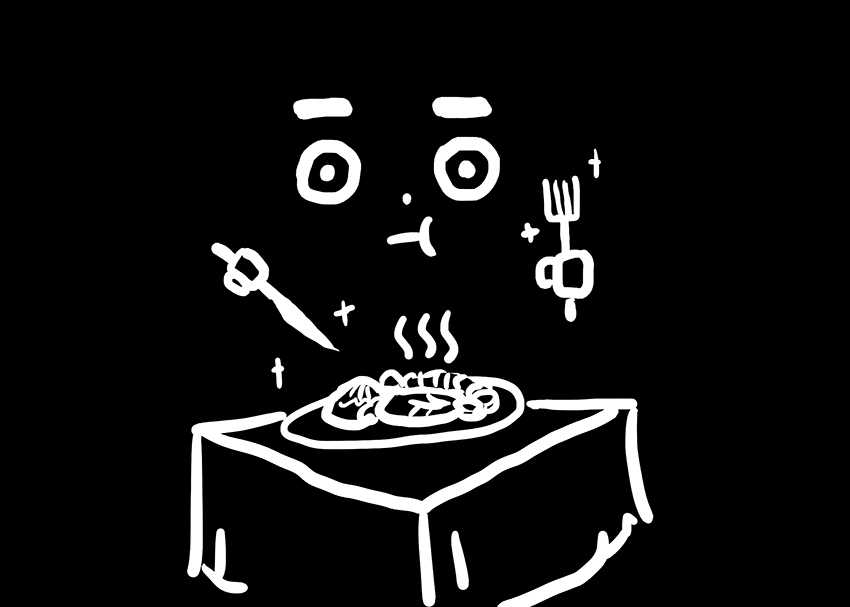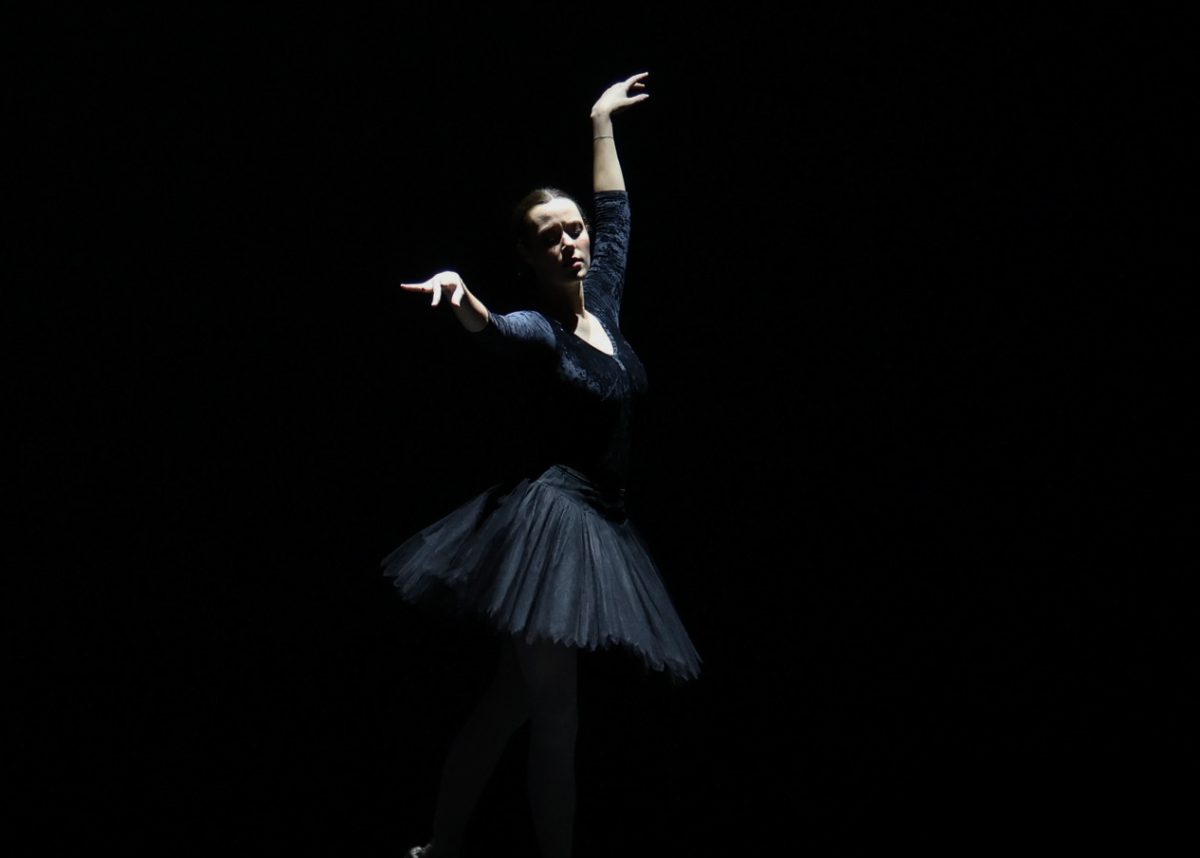Hands fumble against the dark walls of the Student Activity Center ballroom as each student searches for their place at the table and the secret meal that awaits. Welcome to Dinner in the Dark.
Dinner in the Dark, a biannual event hosted by the Disability Advocacy Student Coalition, or DASC, provides students with a better understanding of what it’s like to live with a visual impairment. DASC president Kathryn Strickland believes Dinner in the Dark gives students a platform to ask questions, connect and learn from differently-abled students.
“There are people who are afraid of saying the wrong thing or offending somebody,” Strickland said. “We like to host these kind of events to provide a safe place for people to learn and not be afraid of offending anybody.”
Strickland said there’s no better place to do this than in the dark. On Thursday, students and members of the UT community will be guided into a pitch-black SAC ballroom and served a meal, the contents of which have been kept secret. Madison Lee, a speech and language pathology junior and DASC member, said the meal can be quite comical.
“It’s honestly so funny because you’re just fumbling around in the dark, and it’s such a struggle,” Lee said. “You’re not used to eating like that; you’re not used to not being able to see your hand and bring it up to your face without spilling. Napkins are necessary.”
After the meal, attendees will hear from a panel of blind and visually impaired UT students as they discuss how they go about their daily lives without the use of sight.
“The panel is always really great and really enlightening,” Lee said. “I think the coolest part is you learn so much about a population you don’t interact with as much as (you) should.”
According to Strickland, this year’s Dinner in the Dark will be twice the size of previous years. Strickland said she believes word of mouth is responsible and that most people are simply intrigued by the concept.
“To be quite honest with you, we were shocked to find out these numbers,” Strickland said. “It’s a little bit intimidating, but definitely something we are looking forward to.”
Though Strickland is pleased by the spike in attendance, she said she worries that the novelty of the event may cause some to lose sight of its bigger purpose.
“It’s more of a way to draw the community in to learn from the panelists,” Strickland said. “Dinner in the Dark is really a kind of way to get community members in to learn firsthand about visual impairment.”
Katie Holt, a history sophomore who plans to attend the event, said she was initially intrigued by the idea of simply having dinner in the dark, but looks forward to learning about the lives of those with a visual impairment.
“It sounded really cool and like something I’ve never done before,” Holt said. “It sounded like a learning experience.”
Strickland said events like Dinner in the Dark are necessary because they can help start a much needed conversations about disabilities and advocacy.
“Dinner in the Dark opens (a) door by getting people in to hear firsthand from very real people,” Strickland said. “They’re not ‘other,’ they’re just like you. They just do things a little bit differently.”















